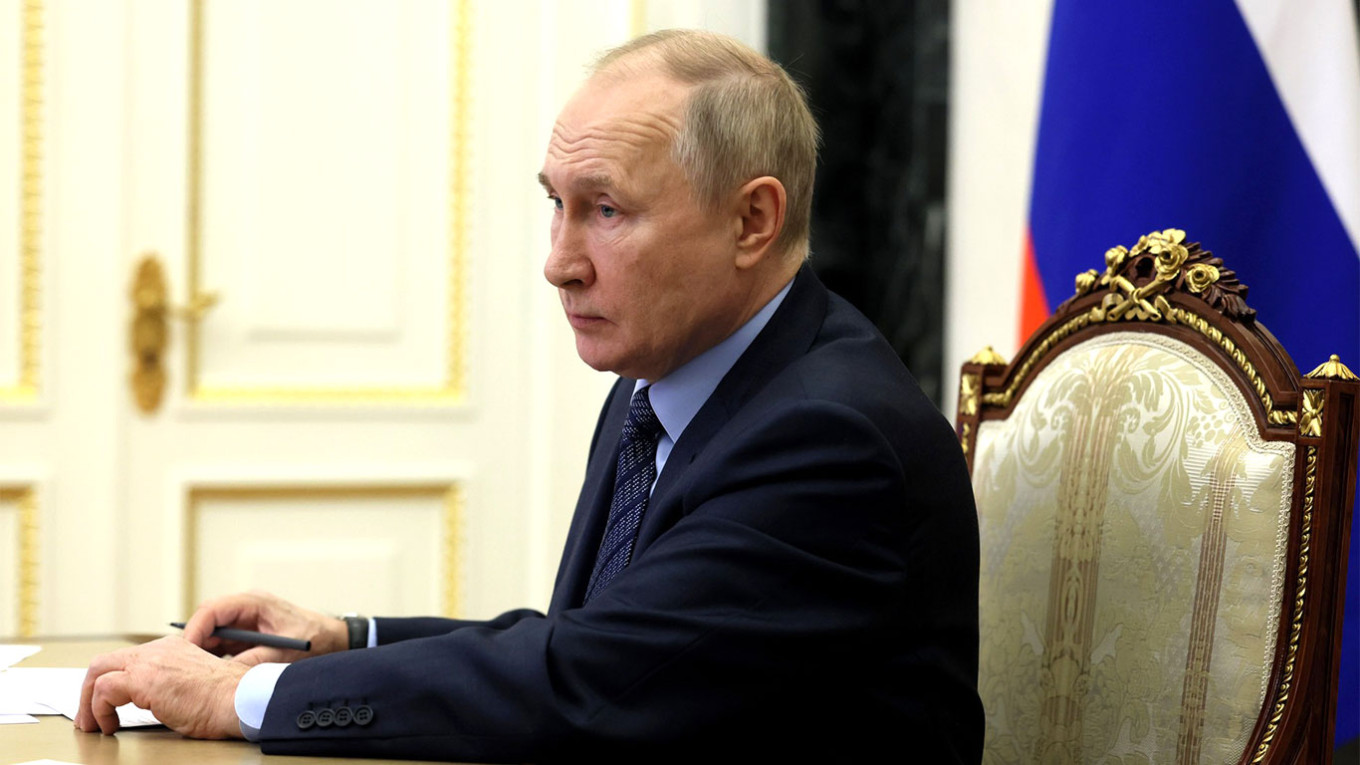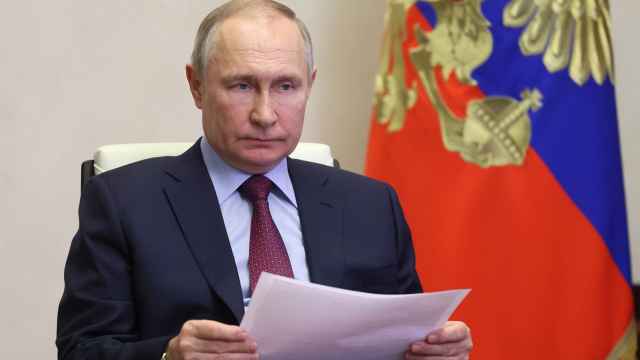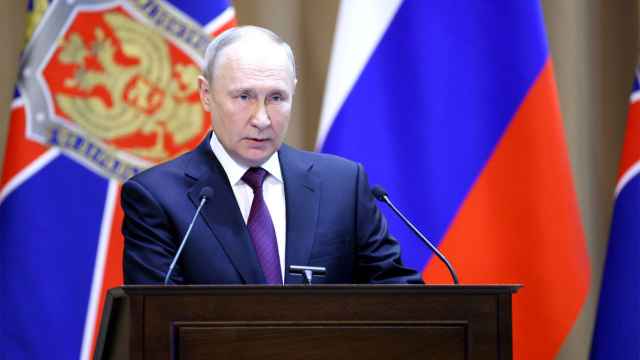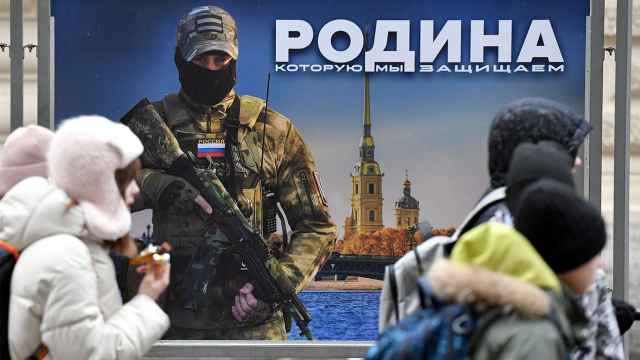The Kremlin has urged members of the presidential Human Rights Council “not to upset” Russian leader Vladimir Putin with thorny questions about the war in Ukraine when they meet Wednesday, independent media reported, citing unnamed sources close to the council.
According to the investigative news website Vyorstka, HRC chairman Valery Fadeyev cleared the topics to be discussed at several meetings with presidential administration members in recent weeks.
Off-limits topics include Russia’s draconian law criminalizing “fake news” about the military; anti-mobilization protests; the Wagner mercenary group’s recruitment of prisoners for the war; and an explosive video showing a Wagner deserter being executed with a sledgehammer.
HRC members were also urged to avoid the “toxic” issue of Russian troop deaths in Ukraine.
Sources cited by Vyorstka said the council’s newest pro-war members “understand perfectly well” not to raise controversial issues with Putin at the upcoming video conference.
Putin overhauled the HRC in November, replacing members who had publicly expressed doubts about the war with more vocal supporters.
Kremlin officials reportedly told council members to approach the issue of Russia’s poorly run mobilization campaign “very cautiously” to avoid fueling public fears about a widely speculated second wave of mass recruitment.
Putin is expected to reiterate his assurances that the mobilization is over, according to Vyorstka, despite occasional reports of military-aged men being forcibly taken to enlistment offices.
Putin “will be happy to talk about” Western sanctions and his oft-repeated grievance about Russian culture being “canceled” in the West, Vyorstka reported.
He is also reportedly willing to discuss non-war-related issues like the recent mass deaths of Caspian seals and the newly passed ban on public expressions of LGBT identity.
One HRC member told Vyorstka that Putin plans to seek more funding for Russia's regions that border Ukraine as they face recurring cross-border attacks.
Fadeyev’s appointment to the Human Rights Council chairmanship in 2019 marked a significant shift in the types of issues raised with Putin to less confrontational topics than those brought up by his predecessors, such as the persecution of dissidents and freedom of assembly.
A Message from The Moscow Times:
Dear readers,
We are facing unprecedented challenges. Russia's Prosecutor General's Office has designated The Moscow Times as an "undesirable" organization, criminalizing our work and putting our staff at risk of prosecution. This follows our earlier unjust labeling as a "foreign agent."
These actions are direct attempts to silence independent journalism in Russia. The authorities claim our work "discredits the decisions of the Russian leadership." We see things differently: we strive to provide accurate, unbiased reporting on Russia.
We, the journalists of The Moscow Times, refuse to be silenced. But to continue our work, we need your help.
Your support, no matter how small, makes a world of difference. If you can, please support us monthly starting from just $2. It's quick to set up, and every contribution makes a significant impact.
By supporting The Moscow Times, you're defending open, independent journalism in the face of repression. Thank you for standing with us.
Remind me later.






